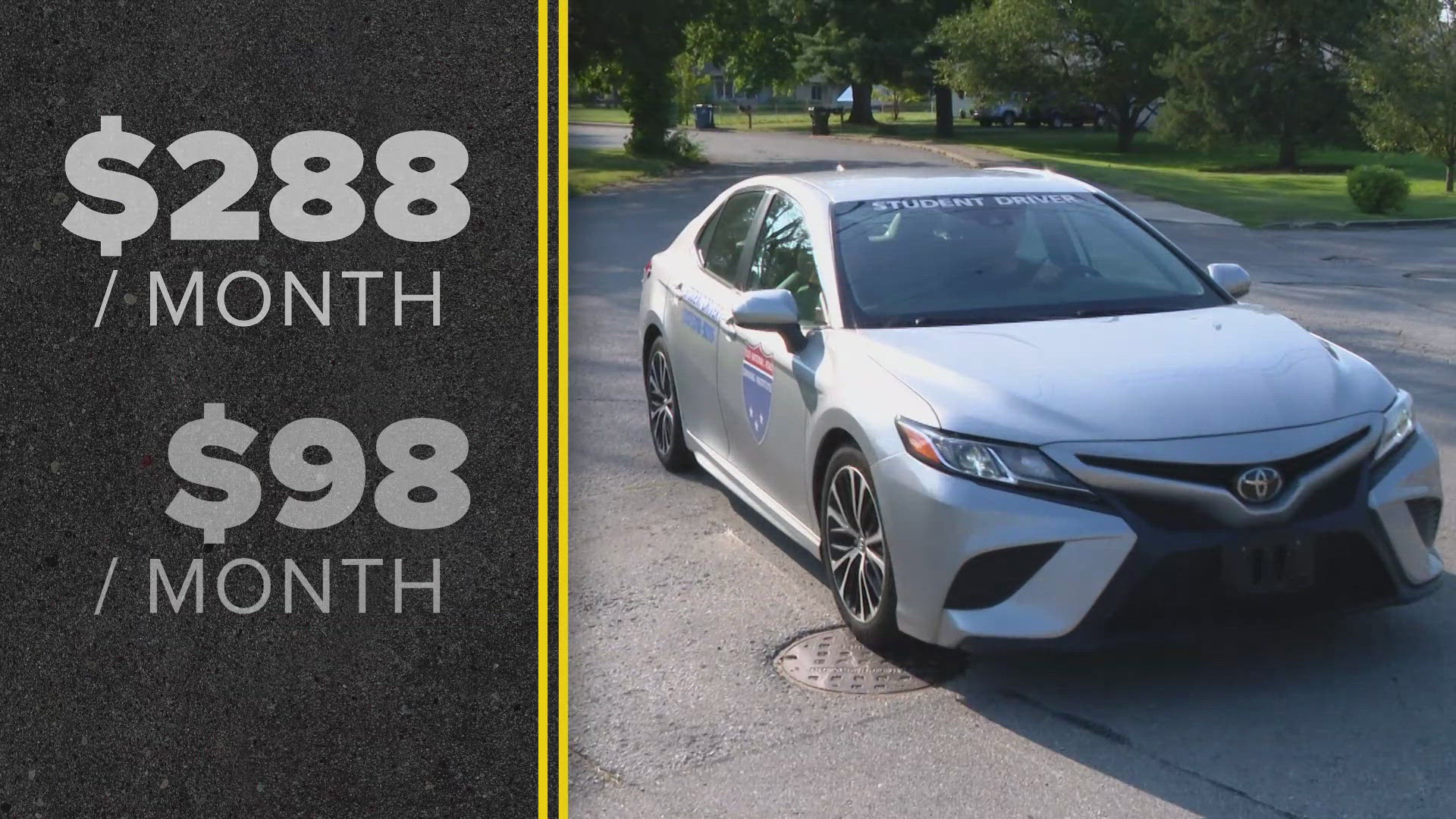GREENFIELD, Ind. — Driving instructor Rebecca Fields knows what it is like to be in a car with a new driver.
"It's kind of like my adrenaline rush now that I'm older in age and can't go jumping out of airplanes all the time," Fields laughed. "I just drive with teenagers."
She knows a teens' experience level can come with a pricey auto policy both because of her job and because she's a parent, too.
"On my policy, I just added my twins. They just got their license," Fields said.
She shopped around for insurance, pressing each company about discounts for twins, driving school and good grades. Good grade discounts are typically for students with a 3.0 or higher GPA.
Her policy went from around $100 a month just for her to $288 for all three drivers.
On Jennifer Frye's auto policy, it is her and her three boys.
"I have a 21-year-old, a 19-year-old and a 16-year-old," Frye said.
Frye said she noticed a dramatic increase in insurance costs over the five years between her first and third child.
"He is more than double what my older son was when he started driving," Frye said.
She pays $630 a month for herself and her three boys, with the 16-year-old alone costing $240. That is more than a third of the bill.
Frye also has a 15-year-old daughter who will need to be added to the policy next year.


Divya Sangameshwar, who works for the consumer site Value Penguin, said insurance companies are raising premiums across the board.
Their recent study found adding a 16-year-old to a married couple's auto insurance increases costs by an average of 173% annually in Indiana. Nationally, it is 158%.
So, why the hikes?
"They (insurance companies) are facing significant losses from climate change, from inflation, and also their own insurance policies are going up," Sangameshwar said.
Still, she said parents who add a teen to their policy instead of getting a separate teen policy save 62% on average.
Insurance prices vary depending on a person's credit score, zip code, coverage options and driving history.
Sangameshwar also suggests shopping around, asking for discounts and consider bundling policies to slow down those premiums.

